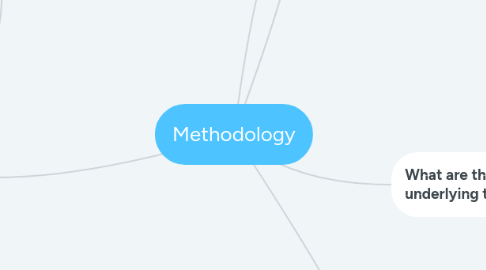
1. What counts as a fact in this area of knowledge?
1.1. Human Science
1.1.1. Human behaviors
1.1.1.1. Question: is this a fact?
1.1.1.2. Is it a fact or just the nature of mankind
1.2. History
1.2.1. Information supported by multiple archeology facts
1.2.1.1. information supported by facts should be historical knowledge, not fact.
1.3. The Arts
1.3.1. Arts are created to express emotions and minds
1.3.1.1. Question: is it the means of arts?
1.4. Natural Science
1.4.1. Theories supported by patterns in real world
1.5. Math
1.5.1. Axioms and theorem
1.5.1.1. Question: I don't think axioms are fact. They are assumptions.
2. What role do models play in this area of knowledge?
2.1. History
2.1.1. a way to generalize or classify historical pattern(why war happen or why empire collapse)
2.2. The Arts
2.2.1. a way to generalize a style to create an art(baroque)
2.2.1.1. would model limited the creation of art?
2.3. Natural Science
2.3.1. attempt to express a certain fact with logical thinking and current discovery(particle model)
2.4. Human Science
2.4.1. understand or explain a certain pattern(memory model)
2.4.1.1. Example: Supply and demand curves in Econ
2.5. Math
2.5.1. simulate an event(simulate the population in an airport)
3. What ethical thinking constrains the methods used to gain knowledge?
3.1. History
3.1.1. Inappropriate methods, such as grave robbery. May disrespect the owners, invade privacy of our ancestors.
3.1.1.1. Example: digging the graves
3.2. The Arts
3.2.1. Photography and sculptures may steal other's privacy.
3.3. Human Science
3.3.1. Psychology experiment, such as Stanford's prisoner experiment, which limits the freedom and undermine the mental health of the participants.
3.4. Math
3.4.1. Potentially nothing.
3.4.1.1. Example against: when mathematicians use Math to avoid taxation?
3.5. Natural Science
3.5.1. Ethical consideration when experiments evolve harm to environment or dissection of animals
4. What are the methods or procedures used in this area and what is it about these methods that generates knowledge?
4.1. History
4.1.1. Reason the historical facts through different primary and secondary sources
4.1.1.1. we learn to distinguish between primary and secondary sources in history classes, and these sources have different credibility.
4.1.1.1.1. Fact: Dates, etc
4.1.1.1.2. Knowledge: Opinions, Reasons/causes
4.2. The Arts
4.2.1. Portrait the real scene or create abstract imagination artwork in order to express the emotion
4.2.1.1. question: must arts express emotions?
4.3. Natural Science
4.3.1. Generate experiments and observations to prove hypothesis and lead to general patterns
4.4. Human Science
4.4.1. Experiment and meta analysis
4.4.1.1. example: in chemistry ia, we did experiments to verify our hypothesis, and according to the background information, we see if the results can be used as a general rule.
4.4.1.2. question: how about collect a large amount of data to get the conclusion?
4.5. Math
4.5.1. Calculation and deduction
4.5.1.1. question: when we do proof problems in math, we use calculation and deduction, but our proving procedures are still based on existed theories, so, can we generate a theory only through calculation and deduction?
5. What are the assumptions underlying these methods?
5.1. History
5.1.1. The written first-hand material by others is authentic based on what happened at that time.
5.2. The Arts
5.2.1. things with emotional interaction with audience are arts
5.3. Natural Science
5.3.1. god doesn't exist
5.4. Human Science
5.4.1. there is no god
5.5. Math
5.5.1. the axioms are true
